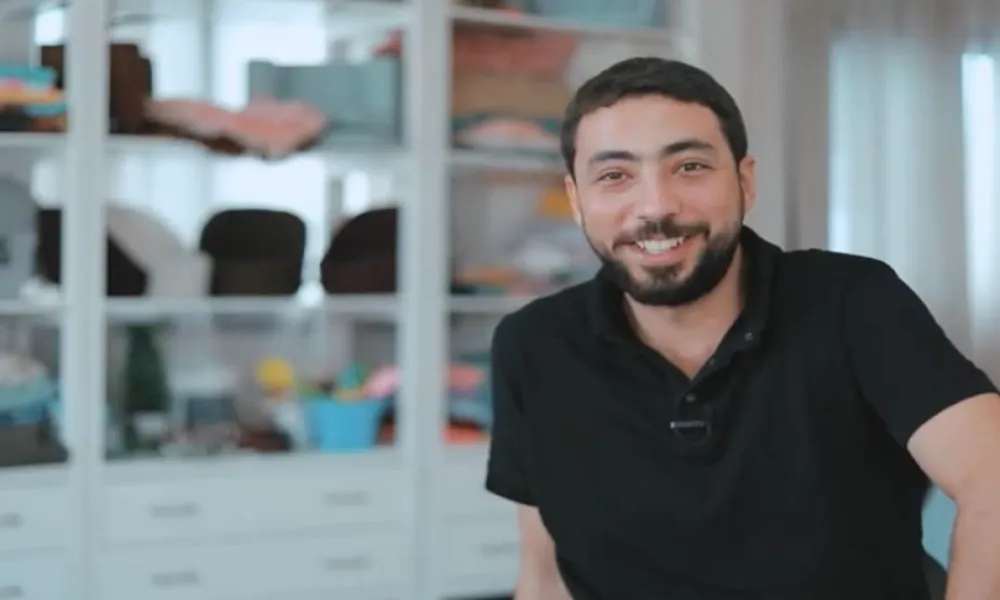Palestinian journalist and photo-reporter of Cypriot descent, Yahia Barzaq, was killed in Gaza on Tuesday, 30 September, by Israeli forces, according to Al Jazeera. Barzaq was working as a correspondent for Turkish broadcaster TRT World and had recently been in touch with the Turkish Cypriot newspaper Bugün Kıbrıs to publish his work.
International media reported that Barzaq was among six people killed when a café in Deir al-Balah, central Gaza, was struck. Rescue services said at least 58 Palestinians, including a pregnant woman and a child, were killed in Israeli military strikes across Gaza that day.
Barzaq is one of more than 250 journalists and media workers killed in Gaza since October 7 2023, making the current conflict one of the deadliest for the press in modern history, according to Palestinian and international monitors.
From portraits of life to images of war
A photographer from Gaza City, Barzaq first became known for his portraits of newborn babies. In interviews he described how, after the outbreak of war, he saw a television report showing one of his photo albums lying amid rubble. Later he learned that many of the children he had photographed had been killed in Israeli bombardments, an experience that drove him to become a photojournalist documenting the suffering of Palestinians in Gaza.
Working with TRT, Barzaq had been assigned to cover the impact of the war on the Palestinian people.
Cypriot roots and a shared history
Bugün Kıbrıs highlighted Barzaq’s Cypriot heritage. During the British colonial period (1878-1950), many Turkish Cypriot families sent their young daughters to marry Arab men in Palestine, then also under British rule, often in exchange for payment. Research by author Neriman Cahit in 2014 estimated that at least 4,000 Turkish Cypriot women were sent to Palestine for marriage.
According to figures cited by Cyprus Mail from Turkey’s Permanent Representative to the UN, Ahmet Yildiz, 104 Turkish Cypriots were awaiting transfer to Turkey in 2023. The “foreign minister” of the breakaway administration in northern Cyprus said that 150 Turkish Cypriots and their relatives fled Israel and Palestine in the first 12 days after the 7 October attacks.
“We are living in a nightmare”
Barzaq’s last messages to Bugün Kıbrıs conveyed the despair and anger of life under bombardment. “I swear to you, my hands are shaking with rage as I speak,” he wrote. “The occupation forces are forcing us to go south, but even there we will not be safe. We are living inside a nightmare.”
In another message he said: “All the areas now under threat are populated. The occupation forces are dropping leaflets to make us go south. But I don’t want to go. I don’t want to live on the street, in a tent. I have already experienced displacement for a year and a half. Now I don’t want to live through the same nightmare again.”
He also described the impossibility of moving his extended family to the so-called “safe zone”: “I can’t think. I don’t want to be displaced or see my children living in fear. But even if we go, we won’t be safe in a tent on the road. We have no tent, no transport to reach the ‘safe zone’ the army says exists. The place they are sending us is being bombed constantly. We are in a state of war. We are not alone; with us are my wife’s family, her elderly parents and aunts over 80. My brother is in the same area with his mother-in-law, who is elderly and injured. We are so many that we cannot think rationally. It is impossible to move. We are exhausted, living entirely in a nightmare.”
Al Jazeera published a video tribute to Barzaq following his death, marking the loss of yet another journalist in a conflict that continues to take a devastating toll on civilians and the press alike.
